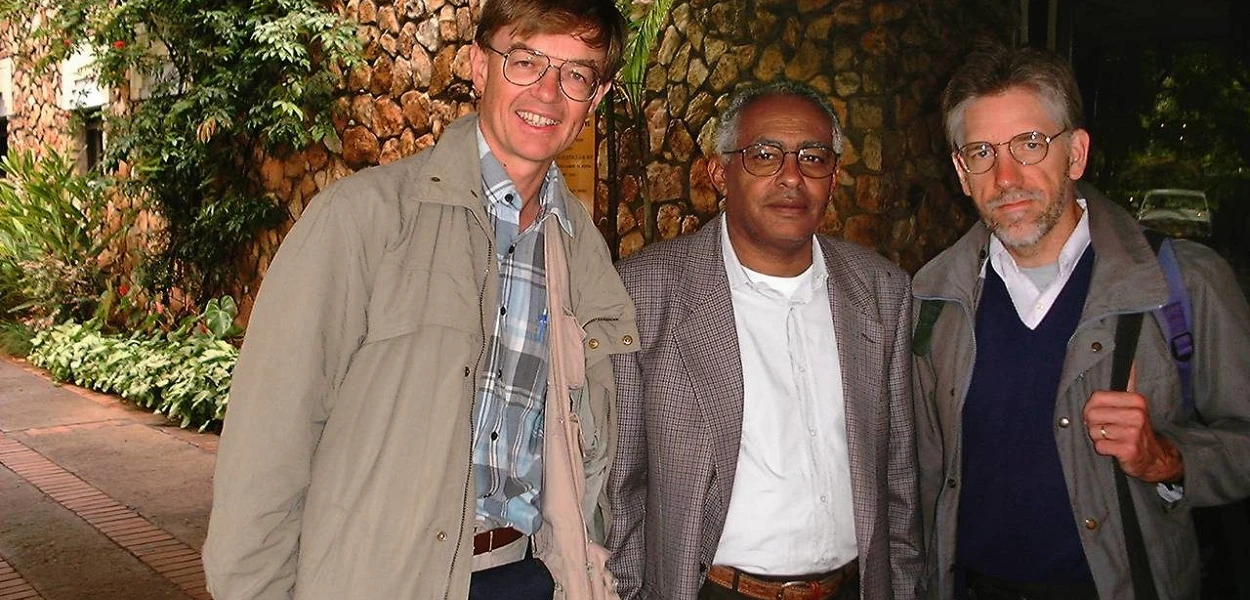
In Memoriam: Bishop Macram Gassis, voice for Sudan’s persecuted Christians
Bishop Macram Max Gassis, a champion of religious freedom and long-standing supporter of CSI’s slave-liberation work in Sudan, has died aged 84.

Bishop Macram Max Gassis (middle) pictured with Gunnar Wiebalck (left) and John Eibner (right) of CSI in 1999. csi
Macram Max Gassis, who was the bishop of the Catholic diocese of El Obeid from 1988 to 2013, was a tireless campaigner for the rights of Christians in Muslim-majority Sudan. He was also a member of the Advisory Council of Christian Solidarity International (CSI).
Bishop Macram was a fearless opponent of the Islamist revival of slavery in his country. He staunchly supported the work of CSI in Sudan to redeem non-Muslim, Black African slaves, stating: “Slavery exists in Sudan. Christian Solidarity International is doing excellent work in helping these children to be brought back to their families.”
Born in the Arabic-speaking north of Sudan, Bishop Macram answered a call to serve the religiously and ethnically diverse people of Sudan as a priest and later a bishop. Even after being forced into exile by the Islamist government in Khartoum, he continued to speak out on the world stage on behalf of Sudan’s severely persecuted Christians.
Slavery exists in Sudan. Christian Solidarity International is doing excellent work in helping these children to be brought back to their families.
– Bishop Macram Gassis
Great inspiration
CSI’s International President Dr. John Eibner pays tribute to Bishop Macram’s life, calling him “a great inspiration for CSI’s religious freedom and anti-slavery work in Sudan. Having worked closed with him over many years, I repeatedly witnessed his profound faith in Jesus Christ and his deep love for the Sudanese people, regardless of their ethnic and religious identity. The world needs more Bishop Macrams.”
Bishop Macram’s vast diocese of El Obeid enfolded Sudan’s Nuba Mountains. He also served for many years as the caretaker bishop for parts of the Diocese of Wau, in what became South Sudan after its secession in 2011. These economically undeveloped areas were targets of genocidal repression by the country’s Islamist military regime.
Driven into exile
In 1988, as the second civil war was still raging, Bishop Macram testified before the U.S. Congress about the human rights abuses being committed by the Sudanese government against its own people, including enslavement, forced starvation, and rape by army soldiers. As a result, the Sudanese government brought criminal charges against him and from 1990 he was obliged to live in exile and work only in opposition-controlled areas.
Putting his own life at risk, Bishop Macram made dangerous pastoral trips into the Nuba Mountains and Southern Sudan, some with CSI. He delivered aid and set up a much-needed hospital there in the early 2000s which continues to provide treatment to people from a wide area.

